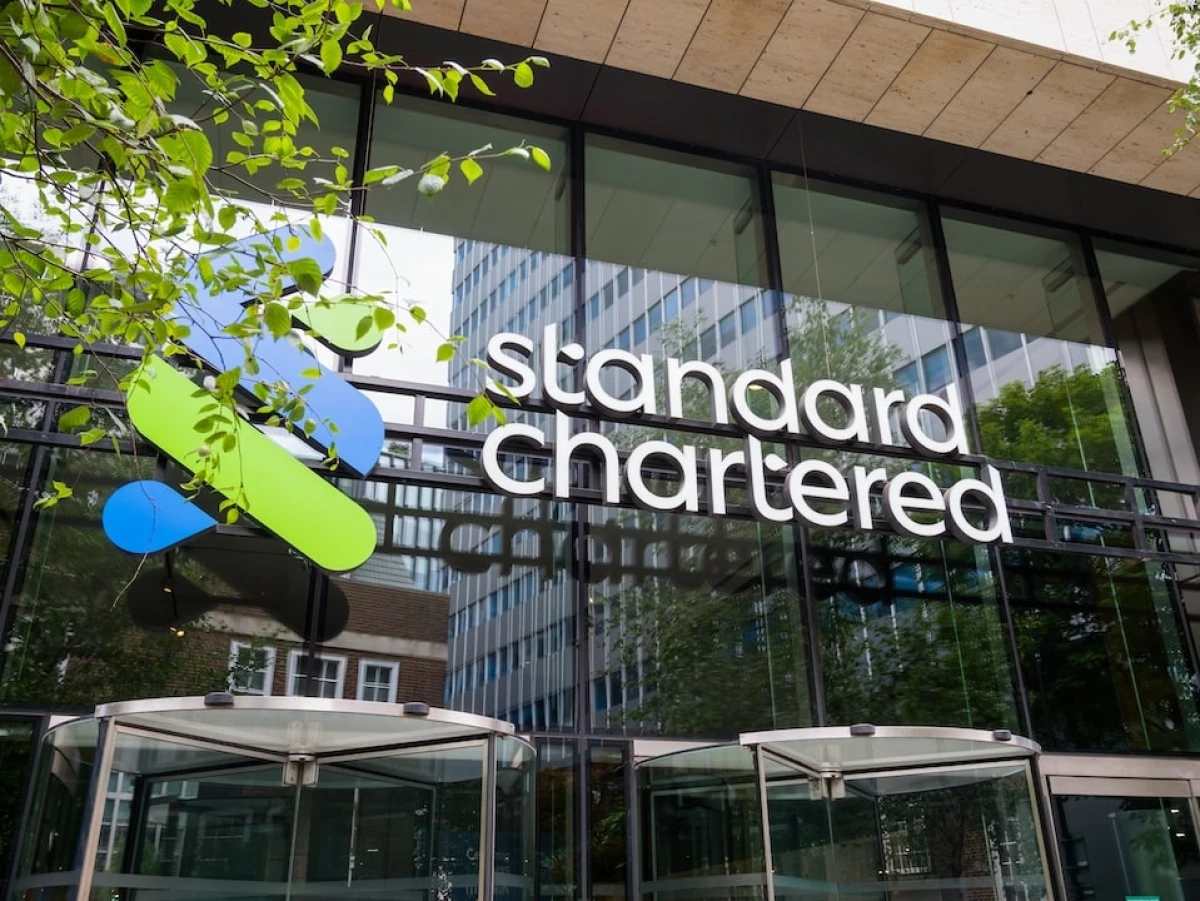#What You Need To Know
Standard Chartered Plc (LON: STAN), an emerging markets-focused lender, plans to return more money to shareholders as part of its efforts to boost returns and simplify its operations. The bank reported fourth-quarter profits that exceeded analysts' expectations and announced a new $1 billion buyback.
Additionally, the bank introduced a "Fit for Growth" program, which aims to save $1.5 billion in expenses over the next three years. However, these cost savings will be partially offset by costs related to organizational changes.
Standard Chartered's CEO, Bill Winters, has been focused on improving investor returns and increasing the bank's stock performance, which has declined by more than 20% in the past year. The bank aims to deliver sustained, long-term value for its shareholders.
Standard Chartered reported a 63% increase in fourth-quarter adjusted pretax profit, and it plans to raise its full-year dividend by 50%. The bank also provided new guidance, targeting a 12% return on tangible equity by 2026 and a 5% to 7% rise in operating income from 2024 to 2026.
Despite its exposure to high-growth markets, the bank's shares have performed poorly in recent months, prompting the possibility of restructuring its institutional banking arm. Options being considered include separating the investment bank from corporate and commercial banking operations, which may lead to job cuts.
Standard Chartered faced challenges in the third quarter due to charges related to investments in China. Overall, the bank is focused on improving its financial performance and overall shareholder value.
#Why This Is Important for Retail Investors
Increased shareholder returns: Standard Chartered's plans to return more money to shareholders and introduce a buyback program is beneficial to shareholders and retail investors who rely on these forms of income and value the opportunity to participate in buybacks.
Financial performance: STAN bank's strong fourth-quarter profits and improved financial performance provide reassurance to retail investors about the stability and profitability of their investment in Standard Chartered. This can help build confidence and attract new investors to STAN stock.
Long-term value creation: Standard Chartered's focus on sustained, long-term value creation aligns with the goals of many retail investors who prioritize stable and growing investments. The bank's guidance for higher returns and operating income growth in the coming years can be seen as a positive long-term outlook for investors.
Transparency and communication: The statements from the CEO and Chairman regarding the underperformance of the Standard Chartered bank's share price demonstrate a commitment to open communication with shareholders. Retail investors often appreciate transparency from company leadership and may find it comforting to see proactive efforts being taken to address share price concerns.
Consideration for retail investors: Standard Chartered's latest actions, such as the dividend increase and the potential restructuring to improve stock performance, indicate that the bank is taking into account the interests and concerns of retail investors. This shows a commitment to creating value for all shareholders and can foster a sense of trust and loyalty from retail investors.
#How Can You Use This Information?
Here are some of the investing ideas that can be explored using this information:
Value Investing
Standard Chartered's commitment to improving shareholder returns and potential restructuring could make it an interesting option for value investors looking for undervalued opportunities.
Dividend Investing
The bank's plans to return more money to shareholders, including a higher dividend payout, may attract dividend-focused investors seeking consistent income.
Defensive investing
Standard Chartered's focus on cost-saving measures and efforts to improve financial performance could make it an appealing choice for defensive investors who prioritize stability and risk mitigation.
Event-Driven Strategy
The potential restructuring and organizational changes in Standard Chartered's institutional banking arm can create opportunities for event-driven investors who seek to capitalize on market reactions to significant corporate events.
Sector Rotation
With Standard Chartered's focus on emerging markets, retail investors interested in sector rotation strategies may consider exposure to the financial sector and the Asian, African, and Middle Eastern regions that the bank serves.
#Read What Others Are Saying
FT: Standard Chartered chief says bank's share price too influenced by 'downside concerns'
Bloomberg: StanChart (STAN) Unveils $1 Billion Buyback as Profit Beats
Sign up for Investing Intel Newsletter
#What you should read next:
RIVN Stock: Rivian Slashes Workforce and Lowers Production Guidance
Intel Expects to Overtake TSMC in Advanced Chip Manufacturing
#Popular ETFs
Some investors prefer to invest in stocks via an exchange-traded fund for ease and reduced risk. Some popular ETFs include the following:
Large-Caps: Vanguard Mega Cap ETF (MGC)
Mid-Caps: Vanguard Mid-Cap ETF (VO)
Small-Caps: Vanguard Small-Cap ETF (VB)
Growth: iShares Core S&P U.S. Growth ETF (IUSG)
Value: iShares Core S&P US Value ETF (IUSV)
Emerging Markets: Vanguard FTSE Emerging Markets ETF (VWO)
Developed Markets: Vanguard FTSE Developed Markets ETF (VEA)
TIPS: iShares TIPS Bond ETF (TIP) - This ETF offers exposure to U.S. Treasury Inflation-Protected Securities (TIPS). TIPS are government bonds specifically designed to help protect against inflation.
REITs: Vanguard Real Estate ETF (VNQ)
